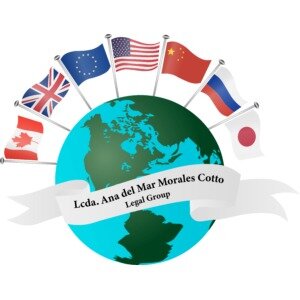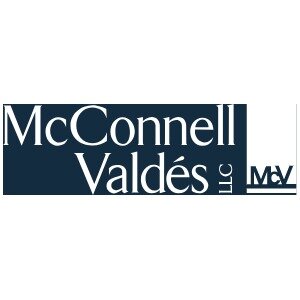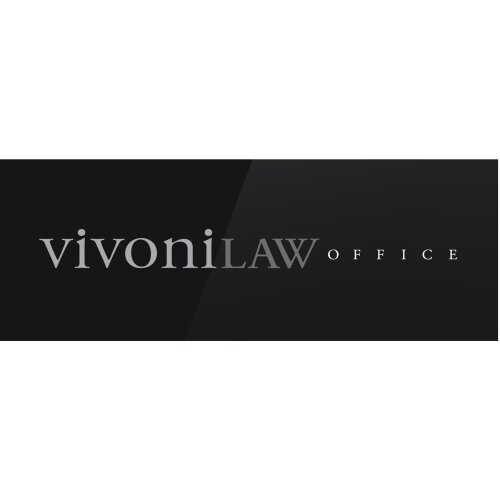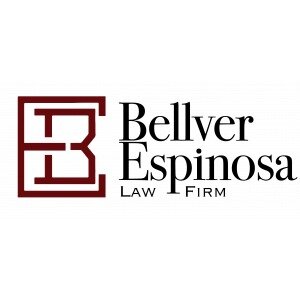Best Financial Services Regulation Lawyers in Puerto Rico
Share your needs with us, get contacted by law firms.
Free. Takes 2 min.
Or refine your search by selecting a city:
List of the best lawyers in Puerto Rico
About Financial Services Regulation Law in Puerto Rico
Financial Services Regulation in Puerto Rico is a comprehensive legal framework designed to oversee and govern various financial activities and institutions within the jurisdiction. This regulation is crucial given Puerto Rico's unique status as a U.S. territory with distinct economic and fiscal policies. The financial services sector in Puerto Rico is diverse, encompassing banks, insurance companies, credit unions, investment entities, and other financial intermediaries. As such, the regulatory environment aims to ensure stability, protect consumers, and maintain the integrity of the financial system.
Why You May Need a Lawyer
There are several reasons why individuals or businesses might seek legal advice in Financial Services Regulation:
- Compliance: Ensuring that your business complies with local financial regulations can be complex. Legal guidance helps interpret these laws and implement necessary compliance measures.
- Licensing: Navigating the licensing requirements for opening a financial services business can be challenging without legal assistance.
- Dispute Resolution: Legal representation is critical in resolving disputes involving financial transactions or issues with regulatory bodies.
- Risk Management: Identifying and managing potential legal risks related to financial operations requires skilled legal insight.
- Regulatory Changes: A lawyer can provide the latest information and analysis of regulatory changes that might affect your business.
Local Laws Overview
Financial Services Regulation in Puerto Rico encompasses several key laws and regulations including:
- Office of the Commissioner of Financial Institutions (OCFI): This body oversees the financial sector, ensuring compliance with both local laws and applicable U.S. federal laws.
- Anti-Money Laundering (AML) Policies: Stringent AML regulations are in place to combat financial crimes, requiring entities to establish thorough monitoring and reporting systems.
- Banking Laws: Governed by both local and federal regulations, banks operating in Puerto Rico must adhere to these directives to ensure safe and sound financial practices.
- Insurance Laws: These laws regulate the establishment and operation of insurance institutions, protecting policyholders and maintaining the sector's integrity.
- Securities Regulations: Both U.S. SEC guidelines and local securities laws apply, regulating public offerings and trading activities.
Frequently Asked Questions
1. What is the role of the OCFI?
The Office of the Commissioner of Financial Institutions (OCFI) regulates and oversees all financial institutions in Puerto Rico, including banks, insurance companies, and securities firms. Their role is to ensure these institutions operate safely, soundly, and comply with the relevant laws.
2. Do federal regulations apply to financial services in Puerto Rico?
Yes, as a U.S. territory, many federal financial regulations apply to Puerto Rico, in addition to any local laws specific to the territory.
3. How can I ensure my financial institution is compliant with local regulations?
Working with a lawyer experienced in Financial Services Regulation is crucial. They can guide you through compliance requirements, help implement necessary protocols, and keep you updated on regulatory changes.
4. What are the penalties for non-compliance with financial regulations?
Penalties can range from fines and sanctions to the revocation of licenses, depending on the severity of the violation.
5. Are there special tax incentives for financial entities in Puerto Rico?
Yes, Puerto Rico offers various tax incentives to attract financial businesses and investments. These can include reduced income tax rates and exemptions under acts such as Act 20/22.
6. How does one obtain a financial services license in Puerto Rico?
Licensing requires meeting specific criteria set by the OCFI and applying with detailed documentation. Legal assistance is often recommended to navigate this process effectively.
7. What are the key consumer protection laws in this sector?
Consumer protection laws in Puerto Rico are designed to safeguard consumers from unfair practices, fraud, and ensure transparency in financial services.
8. Can financial disputes be resolved outside of court?
Yes, many financial disputes can be resolved through arbitration or mediation, which are often faster and less costly than traditional litigation.
9. How does Puerto Rico combat financial crime?
Puerto Rico employs rigorous Anti-Money Laundering (AML) policies and works in conjunction with federal authorities to prevent and combat financial crimes.
10. What should businesses know about reporting requirements?
Financial institutions must regularly report their activities and financial health to the OCFI and other relevant bodies, following stringent accuracy and transparency standards.
Additional Resources
Here are some helpful resources for anyone seeking legal advice or more information on Financial Services Regulation in Puerto Rico:
- Office of the Commissioner of Financial Institutions (OCFI): The primary regulatory body for financial services in Puerto Rico.
- Puerto Rico Department of Consumer Affairs (DACO): Offers resources on consumer protection laws.
- Financial Crimes Enforcement Network (FinCEN): Provides information on combating financial crimes.
- Local law firms specializing in Financial Services Regulation: Many offer consultations to help navigate complex legal requirements.
Next Steps
If you find yourself needing legal assistance in Financial Services Regulation in Puerto Rico, consider the following steps:
- Identify Your Needs: Clearly understand the legal issues or questions you have.
- Research Potential Attorneys: Look for lawyers or firms specializing in financial services and regulatory law in Puerto Rico.
- Schedule Consultations: Meet with potential attorneys to discuss your needs and assess their expertise and fit for your situation.
- Gather Documentation: Prepare all necessary documentation related to your financial activities and any regulatory interactions.
- Define Your Goals: Work with your attorney to outline your goals and develop a plan for addressing your regulatory compliance or legal issues.
Lawzana helps you find the best lawyers and law firms in Puerto Rico through a curated and pre-screened list of qualified legal professionals. Our platform offers rankings and detailed profiles of attorneys and law firms, allowing you to compare based on practice areas, including Financial Services Regulation, experience, and client feedback.
Each profile includes a description of the firm's areas of practice, client reviews, team members and partners, year of establishment, spoken languages, office locations, contact information, social media presence, and any published articles or resources. Most firms on our platform speak English and are experienced in both local and international legal matters.
Get a quote from top-rated law firms in Puerto Rico — quickly, securely, and without unnecessary hassle.
Disclaimer:
The information provided on this page is for general informational purposes only and does not constitute legal advice. While we strive to ensure the accuracy and relevance of the content, legal information may change over time, and interpretations of the law can vary. You should always consult with a qualified legal professional for advice specific to your situation.
We disclaim all liability for actions taken or not taken based on the content of this page. If you believe any information is incorrect or outdated, please contact us, and we will review and update it where appropriate.
Browse financial services regulation law firms by city in Puerto Rico
Refine your search by selecting a city.












